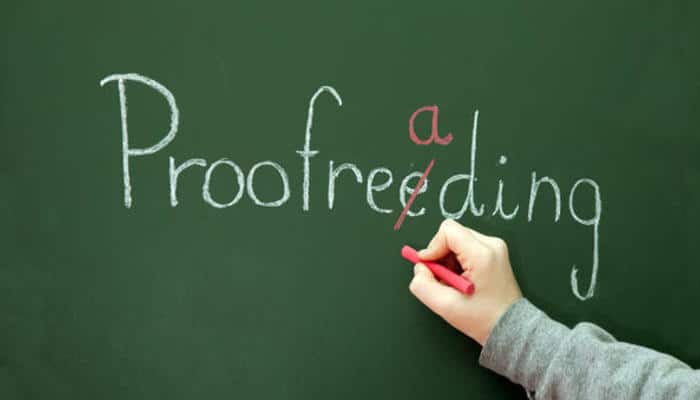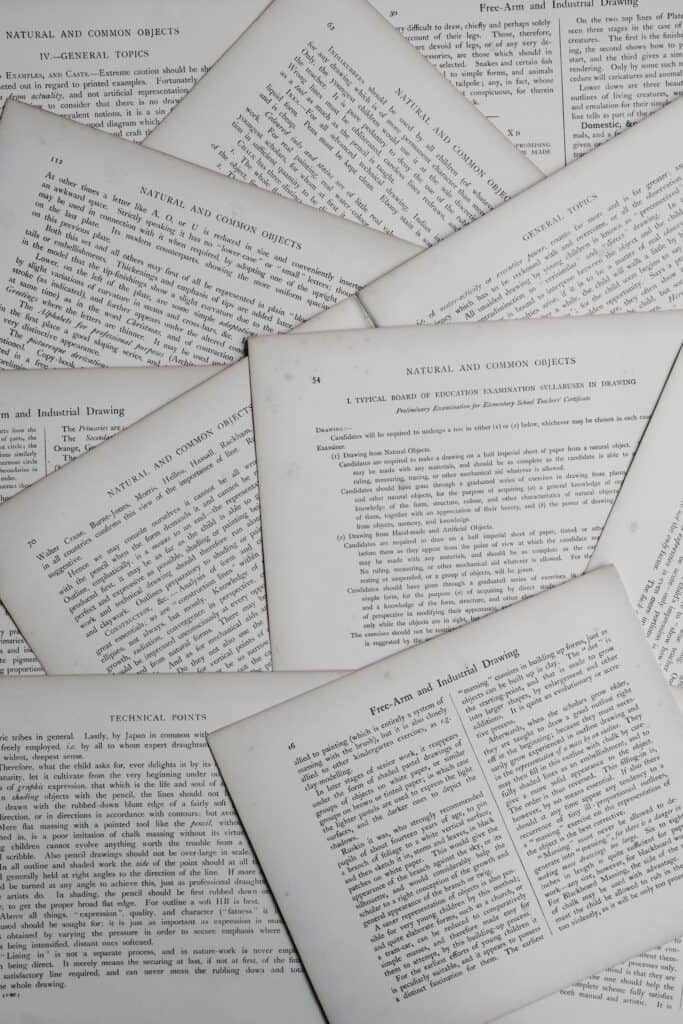EDITMOJO Proofreading
Proofreading is a basic grammar, punctuation and overall check before publishing your book. Proofreading is an essential part of the editing process. It is a service that ensures that errors are corrected before your work goes live to the public. A proofreader checks for grammar mistakes, punctuation and spelling errors, word usage, and other issues to ensure maximum readability.
Grammar and punctuation checks are part of the copyediting and line editing process, but on its own, a proofread is a final read-through of a document that doesn’t need a more thorough edit.
A good proofreader will provide feedback on grammar, punctuation, and formatting. They proofread a document to look for errors in spelling, grammar or language usage that might not be apparent to the average person reading it. Proofreading is often done after editing – before the publication of a manuscript. However, some people, such as self-publishers with a limited budget, will edit their manuscripts themselves and hire a proofreader to help catch anything they missed.
The proofreader looks for any mistakes that might have been missed throughout the editing process or by other professionals before publication. For instance, if there are 80K words in your manuscript, it may be challenging to catch all errors without someone going over every word with a fine-tooth comb. But no matter how perfect you think you’ve made something, more read-throughs can always make things better!
GOAL
Our goal is to help you publish the best version of your book!
Progressing to the Next Draft (Editmojo Proofreading)
Why do you always find typos, grammar errors and contextual inconsistency in a manuscript each time you read it? You need a professional’s help! The truth is these mistakes will jolt your readers out of the story. Instead of getting caught up in what’s being said or written, suddenly, all attention shifts onto the error. That’s why proofreading becomes vital. Instead of having these distractions occasionally, people can focus more on reading with no interruptions!
A professional proofreader will look out for spelling, grammar, and punctuation mistakes. They also check to ensure there are no inconsistencies in the text, which may hinder the reading experience or even confuse readers. This includes but is not limited to:
- Confusing words like “there” vs. “their,” “every day vs. everyday,” etc.
- Unclear pronouns such as him/her; she’s/she they’re, etc.
- Formatting inconsistencies (e.g., running headers on pages or different fonts)
- Inconsistent use of headers/footers in chapters vs. sections within a chapter
- Checking layout, images and graphs

Self-Publishing and Proofreading (Editmojo Proofreading)
Self-publishing has made it possible for many authors to have their books become a success. But, these same authors are often tempted by the idea of cutting costs and self-proofreading to save money on editing services such as formatting or layout design. When you want your book product quality and marketability to improve with time, getting professional proofreaders is quickly becoming common among indie writers worldwide!
Proofreaders are often the unsung heroes in publishing. Besides trade publishing, they can be found working with academics who need last-minute corrections before an article is published or journalists who want their articles to read like a novel instead of just words on paper. They might also work for advertising companies, making sure that all facts and numbers presented in slideshows are correct; this may even include presentations made by top executives!
How much does proofreading at Editmojo cost?
Proofreading is a tedious task that many people avoid. Hiring an experienced professional proofreader will be worth the investment to ensure your work stands out from the crowd.
A basic level proofread would cost $5 per 1K words, while the more popular editing services, like a copyedit, start at $10 per 1K words.
DIY Proofreading
Writers can and do proofread their own work, but with a longer piece of writing meant for wider consumption—like a book—there is still nothing that can beat the trained professional. For other types of content (i.e., emails), writers usually rely on online spelling and grammar checkers like Grammarly. These catch any major mistakes missed in reading what they wrote or by simply re-reading something again after publication, which will reveal typos and ungainly sections of text if you’ve failed to edit.

DIY Proofreading Tips
The first tip for proofreading is to take your time and read the entire content. This may seem like an obvious tip, but if you’re feeling rushed or have many other things going on in life, this might be difficult. It’s worth taking some extra time to make sure that everything has been properly edited before publishing it for all the world to see
The second tip is to use a variety of tools. For example, there are many ways to proofread your content, which will help find errors that might get overlooked.
The third tip is to ask for feedback from people! Sometimes we don’t always catch our own mistakes, or something doesn’t make sense to others.
The fourth tip is to use a reliable spellchecker. Grammarly is a great free program, as is Word’s standard spell checker.
The fifth tip is to read your content out loud. This will help you catch any mistakes or awkward phrasing that might not be noticeable when reading silently on the screen or printed page.
The sixth tip is to focus on each sentence individually and ensure it reads well, with no punctuation errors. Again, it’s easy to get caught up in the flow, but treating each sentence individually will help you spot additional issues.
Check you have used the correct words and phrases throughout your text
Consistency is important. A proofreader will check you have used the correct words and phrases throughout your text. Names, phrasing and proper nouns tend to shift.
Proofreaders will check consistency to make sure there is no confusion about what you mean and check for any punctuation or grammar errors.
Be sure to read over any quotations from other sources for accuracy carefully
One of the biggest missed mistakes is misquoting a source. The only way to make sure you are quoting the correct text is by reading it over carefully. Unfortunately, proofreading rarely provides fact-checking, but it can often be added as a special request.
It’s important that if there are quoted statements or quotations from other sources in your content, they should be checked for accuracy before publishing.

Beta-reader vs. proofreading
If possible, ask someone else to read over your work as they will often spot things that are difficult for you to see when reading through yourself.
A free beta reader is always welcome before you have the document proofread. A beta reader is someone who reads over your work before it’s published to point out any errors or concerns. It’s more of a content look but something you should consider before the final proofread.
A beta reader will read through your material and then write up notes on what they found confusing in the content and other mistakes that might be present.
Why do you need a professional proofreader for your work
If you want your work to be taken seriously, you must have your material proofread before publishing. Many things might go unnoticed when reading through yourself, and others who read over will often spot them.
Like any endeavor, writing is not perfect the first time around. However, an expert proofreader can help you avoid or fix those mistakes.
Tips for working with a proofreader
- Have a list of concerns you want the editor or proofreader to keep an eye out for
- Send your work in an easily readable format
- Get the fee, deadline and processes for revisions before you start
Get a proofreading specialist
If you have a manuscript with niche content, look for a specialist. An expert in that field can catch mistakes you or a general editor might otherwise miss.
For instance, if your novel’s niche is green energy, find a specialist in the industry to review it for errors or an editor that has worked with similar content in the past.
If you are unsure about content, reach out to the proofreader to go over any questions or concerns and get a sample edit to make sure you both are a good fit.
Get a Sample Edit
A sample edit will show you how the editor will work with you directly and what to expect if you hire them. Sample edit requests are common and are mainly used by professional authors to select the right editor. So, get a handful of samples for the sample section and compare. If budget is a factor, compare quality and pricing.
Conclusion
Proofread your book before you publish it. When a writer has an editor read their work, they look for more than just typos and grammar errors. They will also check to make sure the plot is cohesive, that there’s enough conflict or tension in each scene (which keeps readers reading), and if the story arc builds up to a satisfying conclusion. Even though the writing part isn’t our job as editors, we still know when something needs tweaking! So get your book proofread or edited by Editmojo now so you can get back to writing!
Proofreading is the best way to ensure that your book has a professional look and feel, whether it’s an e-book or hard copy. In addition, a well-proofread document will minimize any typos or grammatical errors, which distract readers from what you’re trying to say. We offer affordable proofreading services for authors looking to polish their work before sharing it with wider audiences.
Editmojo proofreading
